Case of the Week #604
Femicare, Center of prenatal ultrasonographic diagnostics, Martin, Slovakia
A 29-year-old G2P1 presented to our office at 36 weeks, 5 days gestation due to an abnormal cardiac finding.

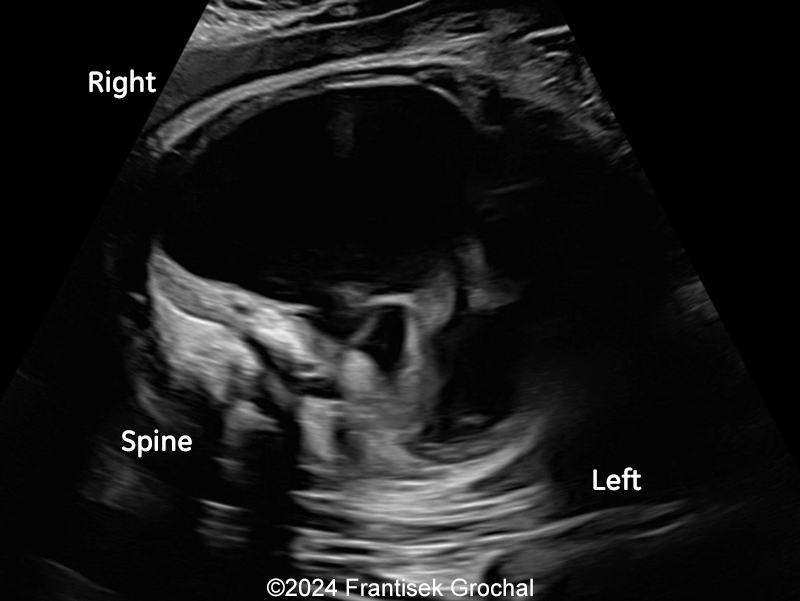
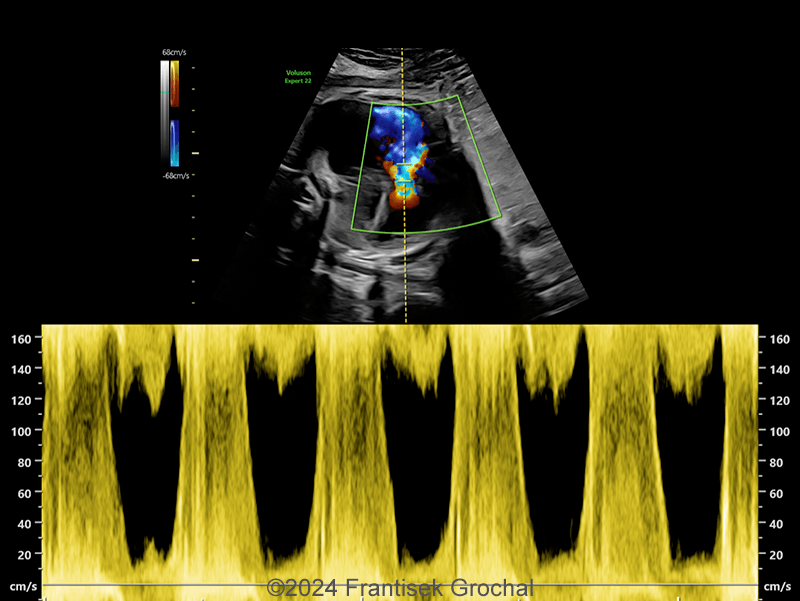

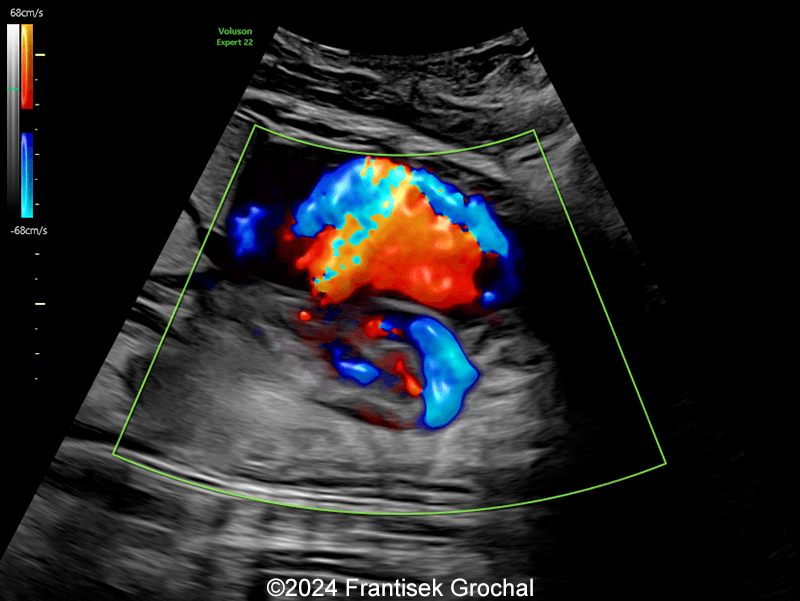
View the Answer Hide the Answer
Answer
We present a case of pulmonary atresia with intact ventricular septum (PAIVS) and severe tricuspid dysplasia and regurgitation.
Our examination identified the following findings:
- Marked cardiomegaly / wall-to-wall heart (cardiothoracic area ratio 0,82)
- Severe tricuspid regurgitation with striking enlargement of the right atrium and ventricle
- Large atrial septal defect – common atrium
- Small pulmonary artery and branches
- Tortuous ductus arteriosus with retrograde flow
- Pulmonary hypoplasia
- Oligohydramnios
A female infant with birthweight 2730g was born spontaneously two days later after our examination and immediately transported to the National Institute for Cardiovascular Diseases. Diagnosis of pulmonary atresia with intact ventricular septum (PAIVS) and severe tricuspid dysplasia was confirmed. The infant has undergone several surgical operations including Starnes' operation, thymectomy, placement of the Laks' shunt, resection of the right atrium, right atrial appendage ligation, and Dual Chamber Pacemaker DDD placement due to the third-degree, and later second-degree atrioventricular block. The postoperative course was complicated by Pseudomonas aeruginosa sepsis, Enterococcus faecalis bacteremia, artificial ventilation, laryngomalacia, cardiac decompensation, hepatomegaly, lung hypoplasia, and pneumopathy requiring intensive care. The baby is 9 months old and is doing relatively well; awaiting potential bidirectional Glenn shunt procedure.

Image 1 and Video 1 show a transverse sweep through the fetal abdomen and thorax showing a four-chamber-view of the heart with marked cardiomegaly (wall-to-wall heart) with dominant enlarged right ventricle and atrium. Left and right atria communicate via large defect (common atrium). A dysplastic tricuspid valve can also be seen. Lung hypoplasia is also evident. LA – left atrium, RA – right atrium, RV – right ventricle, LV – left ventricle, Ao – aorta, St - stomach.
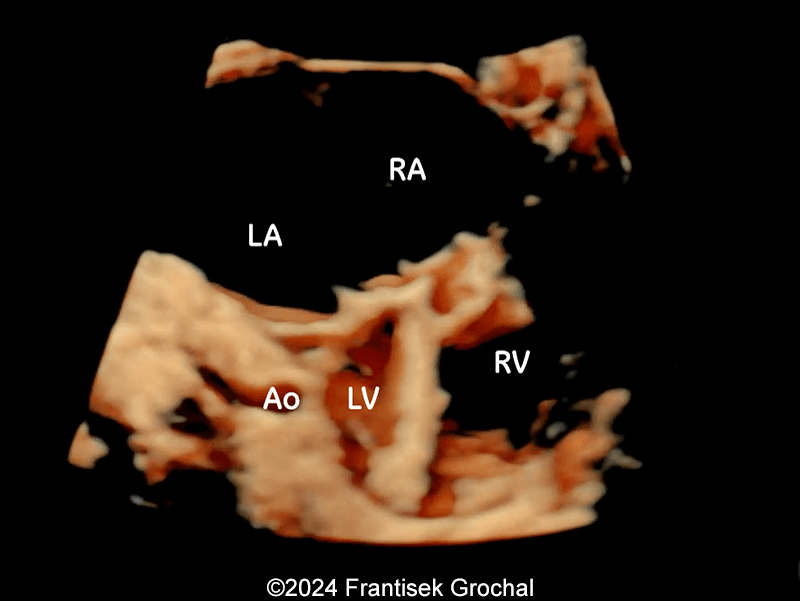
Image 2 and Video 2 show a 3D/4D imaging of the fetal thorax showing a four-chamber-view of the heart with marked cardiomegaly (wall-to-wall heart) with dominant enlarged right ventricle and atrium. Left and right atria communicate via large defect (common atrium). A dysplastic tricuspid valve can also be seen. Lung hypoplasia is also evident. LA – left atrium, RA – right atrium, RV – right ventricle, LV – left ventricle, Ao – aorta.
Video 3 and Video 4 represent a transverse scan of the fetal thorax showing marked cardiomegaly (wall-to-wall heart) with dominant enlarged right ventricle and atrium. Due to severe cardiomegaly classical views of the left and right outflows and three-vessel-trachea view were not typically depicted, but as the sweep of the probe goes through the heart, aorta (Ao), tortuous ductus arteriosus (DA), hypoplastic pulmonary artery (PA) and its branches can be seen.

Video 5 and Image 3 represent a sagittal image of the heart demonstrating the aortic arch (Ao arch) and reverse flow within ductus arteriosus (DA).

Video 6 and Image 4 represent a color Doppler and spectral Doppler scan of the fetal thorax showing marked cardiomegaly (wall-to-wall heart) with severe tricuspid regurgitation.
Discussion Board
Winners

Javier Cortejoso Spain Physician

Alexandr Krasnov Ukraine Physician

Oskar Sylwestrzak Poland Physician

Tatiana Koipish Belarus Physician

CHARLES SARGOUNAME India Physician
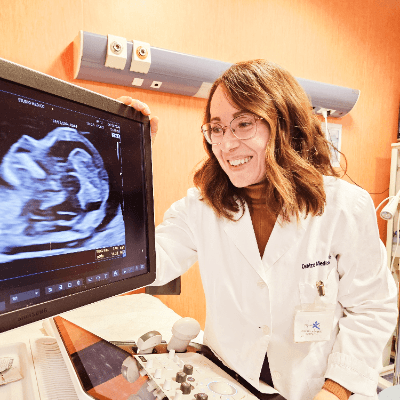
Marianovella Narcisi Italy Physician

Javier Ayala Spain Physician
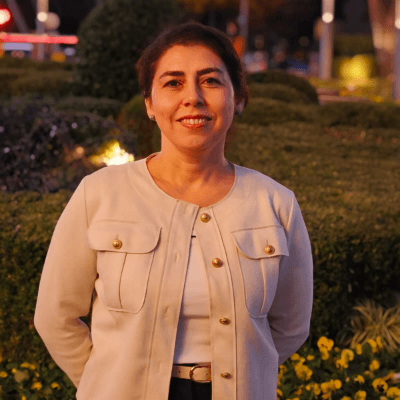
Muradiye YILDIRIM Turkey Physician

Sonio Sonio France AI
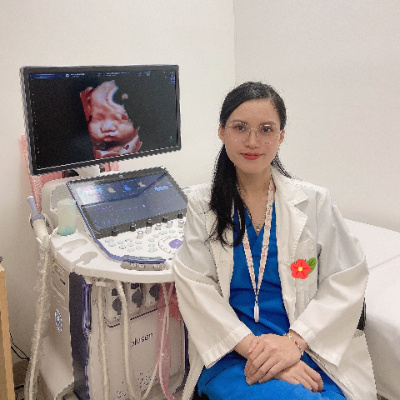
Đặng Mai Quỳnh Viet Nam Physician

TUYEN LE KIM Viet Nam Physician

Veronika Bartkovjaková Slovakia Physician

Tetiana Ishchenko Ukraine Physician